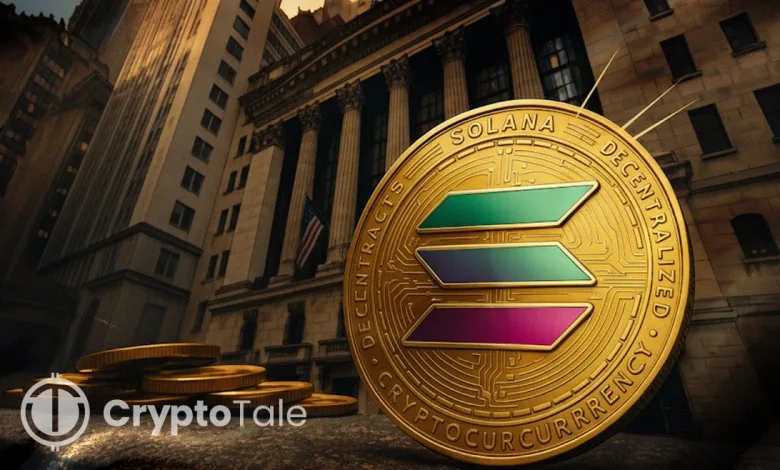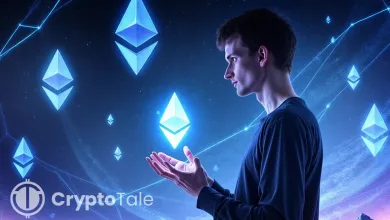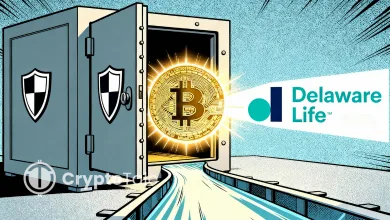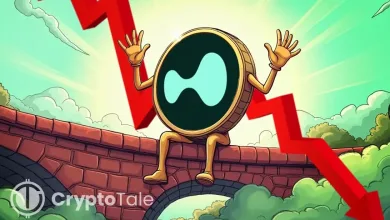Solana Aims to Become the Internet’s Financial Backbone

- Solana surpasses 1,000 TPS with ultra-low fees, rivaling legacy networks like Visa and Nasdaq.
- The network expands in Chinese fintech markets through AI, DePIN, and payment innovation.
- Liu unveils Solana’s vision for “tokenization of everything” across finance and real-world assets.
Solana Foundation President Lily Liu outlined an ambitious goal for Solana. Speaking at the 2025 Shanghai International Blockchain Week, Liu outlined Solana’s vision to surpass traditional financial systems in speed, scalability, and cost efficiency. She described Solana as “the internet’s financial backbone,” integrating payments, tokenization, and decentralized infrastructure into one ecosystem.
Liu highlighted that Solana’s ecosystem now processes over 1,000 transactions per second. Each transaction costs less than $0.0005, making it one of the fastest and most affordable networks globally. She said this performance brings Solana closer to legacy systems like Visa and Nasdaq. The network’s low latency and high throughput position it as a realistic competitor to traditional payment systems.
The daily activity on Solana is now greater than the sum of all other public blockchains. Liu noted this expansion is a result of widespread adoption across the network, application, and asset layers.
Scalability Milestones Strengthen Solana’s Financial Ambitions
Solana’s “Alpenglow” upgrade reduced block finality to 150 milliseconds, improving transaction confirmation times. This performance milestone demonstrates Solana’s focus on scalability and efficiency. The Foundation says it is working to maintain these standards while expanding developer participation worldwide.
By the end of 2024, Solana’s ecosystem had raised $8.9 billion in funding and generated $3.3 billion in application revenue. Over 7,500 developers have joined the network, building more than 2,000 on-chain applications. Liu emphasized that this expansion helps Solana achieve its objective of hosting all asset classes in a single, unified architecture.
Institutional participation has also increased as firms explore tokenization and digital payments on Solana. More organizations are adopting the network for real-world assets and decentralized payment infrastructure.
In blockchain finance, Solana’s scalability has emerged as a crucial competitive advantage. Its high throughput enables settlement almost instantly, while its low fees make it appropriate for institutional use and international micropayments. The combination of technical speed and ecosystem maturity reflects Solana’s readiness for large-scale financial applications.
Related: Solana and Bitcoin Lead 155 Cryptocurrency ETF Filings
Expanding into China and the “Tokenization of Everything”
Solana is now deepening its presence across Chinese-speaking fintech and developer ecosystems. The Foundation recently launched its “Accelerate APAC” initiative in Shanghai, Shenzhen, and Hangzhou. The program focuses on payment innovation, decentralized payments (DePIN), and artificial intelligence integration.
Liu said Solana aims to attract regional talent to accelerate blockchain adoption in Asia. She added that collaboration with Chinese developers is essential for scaling the next phase of internet finance. The Foundation believes Asia’s fintech market offers a strong base for building cross-border blockchain applications.
The expansion comes after a Solana spot ETF approval in Hong Kong, available in both USD and RMB counters. This listing highlights institutional confidence in technology and the market potential of Solana. The ETF also strengthens Solana’s position as a viable blockchain asset in regulated financial markets.
At the Shanghai conference, Liu discussed Solana’s broader mission, the “tokenization of everything.” She said the goal is to connect real-world and on-chain assets through decentralized networks. Projects are already linking Solana with artificial intelligence to create new economic models.
One example is MMA.INC’s partnership with NVIDIA, which uses Solana to power AI-driven sports engagement platforms. The system uses blockchain-based incentives to compensate users for taking part in training simulations.
Liu concluded that Solana seeks to unify finance under a shared digital standard. “If Bitcoin is digital gold, Solana is the internet’s native financial infrastructure,” she said.
This development points to a change in the industry toward the integration of blockchain technology with traditional financial systems. The speed, efficiency, and interoperability of Solana could revolutionize global finance as the network grows.




